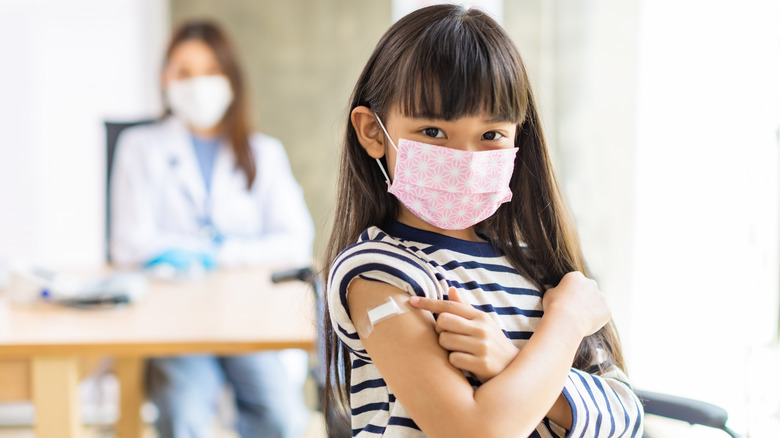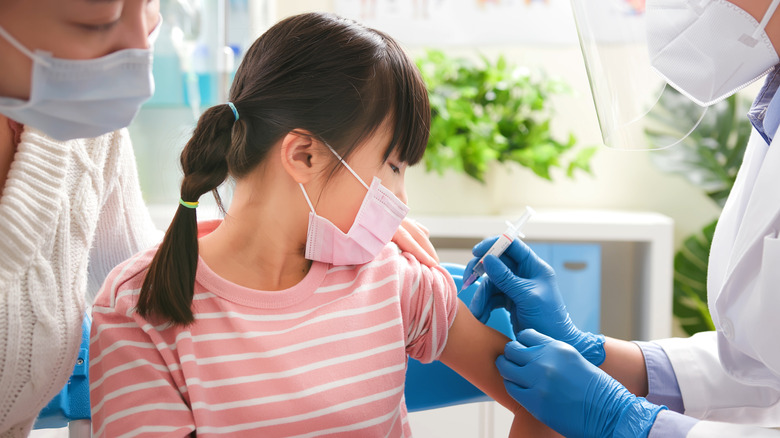What To Know About The Newly FDA-Approved Pfizer Booster For 5 To 11-Year-Olds
The U.S. Food and Drug Administration (FDA) granted emergency use authorization on Tuesday for a booster dose of the Pfizer-BioNTech COVID-19 vaccine for children ages 5 to 11. Children within the age group can now receive a booster shot of the vaccine at least five months after the primary two-dose series, according to a statement released by the agency. Previously, only children 12 and older were eligible for a booster shot (via NPR).
Now, however, the eight million children who have received the first two shots of the vaccine will be eligible to get additional protection against the virus and its many variants, according to the New York Times. This news comes amid emerging data that the effectiveness of the primary vaccine series begins to wane after the second shot in all age groups. For 5 to 11-year-olds, research has shown that the vaccine's effectiveness against infection dropped from 68% to 12% anywhere from four to five weeks after the second shot, despite still providing protection against severe illness and hospitalization.
Pfizer's booster shot increases antibody production in children
A third shot of the vaccine, however, can help produce a stronger immune response against the highly transmissible Omicron variant of COVID-19 and other strains of the virus (via CNN). According to data from the clinical trial, the newly authorized booster, which has the same dosage of the first two shots, increased antibodies that protect against Omicron by 36 times among children between the ages of 5 to 11.
In a statement, FDA commissioner Dr. Robert M. Califf said that while children have been less likely to experience severe illness after contracting the virus, "the Omicron wave has seen more kids getting sick with the disease and being hospitalized, and children may also experience longer term effects, even following initially mild disease." According to the FDA, the safety of the dose was assessed in 400 children who received the booster shot five to nine months after completion of the primary vaccine series (via HealthDay News). The most common side effects of the third shot were the same as the first two shots, some of which included fatigue, headache, muscle pain, chills, and swelling at the injection site.


